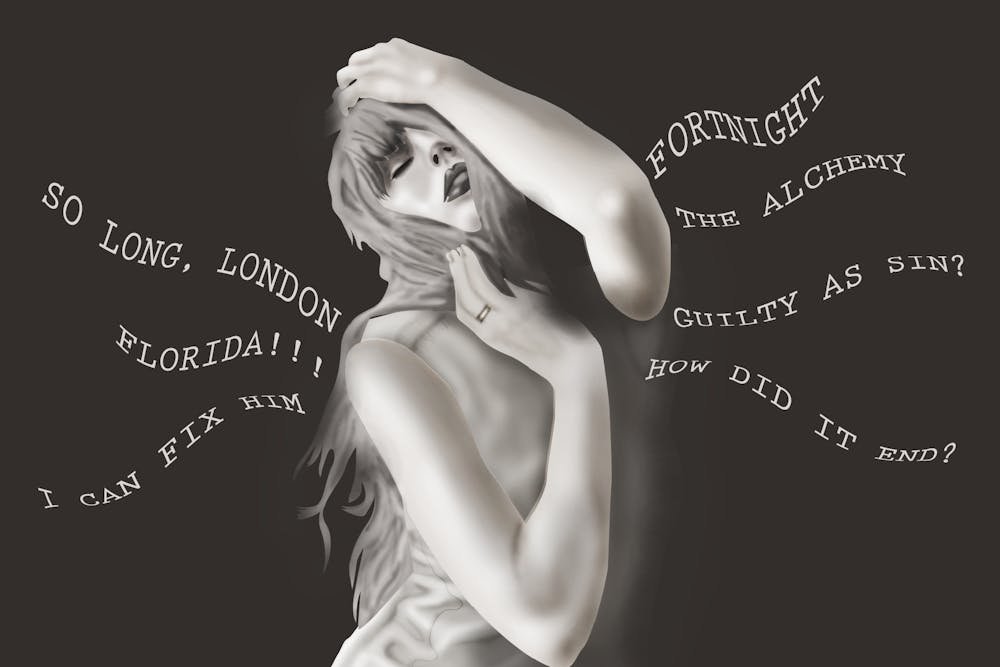When Taylor Swift released her latest project "The Tortured Poets Department" on Friday, she posted a message to social media that read, "Once we have spoken our saddest story, we can be free of it."
That sentiment is at the heart of "The Tortured Poets Department" and the second surprise album, announced two hours after the release of the first, “The Tortured Poets Department: The Anthology.”
As an English major with a love of poetry, I had almost unrealistically high expectations for this album. Swift's use of literary references and her focus on heartbreak and healing live up to its name.
The 31 total released songs manifest Swift’s experiences with the grief of lost love and invite the listener to confront their emotions alongside her.
Swift opens “The Tortured Poets Department” with the album’s first single, “Fortnight (Ft. Post Malone),” which, musically, had me hooked. Unfortunately, the lyrics for this song fell short, which has been a widespread criticism of some of the album's songs across social media.
I had high expectations for an album centered around poetry and I couldn’t help but be disappointed to hear the woman who wrote the album “evermore” sing “You smoked then ate seven bars of chocolate” and call her lover a "tattooed golden retriever" on the album’s title track.
The first few tracks on this album felt like they were made for fans’ consumption, but Swift shines most when she writes for herself. Luckily, most of this project is strikingly personal — almost like it was never meant to be heard at all.
Across Swift’s discography, it's no secret that the fifth song on each of her albums' tracklists is her most personal, and “So Long, London” may be her most unarmed to date.
“I stopped CPR, after all, it’s no use. The spirit was gone, we would never come to. And I’m pissed off you let me give you all that youth for free,” she sings.



